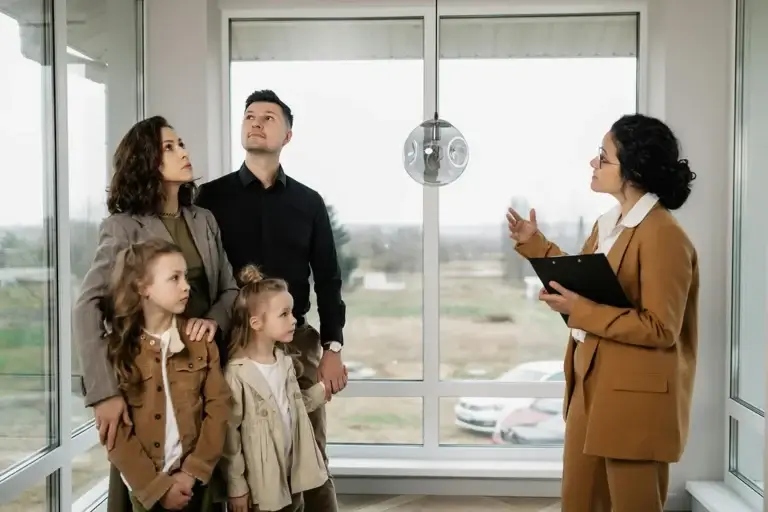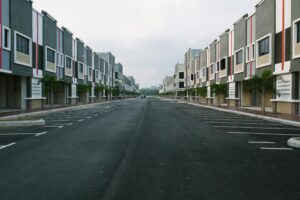Introduction
In today’s competitive real estate market, first impressions are everything. With most buyers starting their property search online, high-quality visuals have become a crucial aspect of real estate marketing. Professional real estate photography and staging can make the difference between a property that sits on the market and one that sells quickly, often at a higher price. This article explores how to maximize a property’s appeal through expert photography and strategic staging, reflecting current trends and best practices in 2024.
The Power of First Impressions
According to the National Association of Realtors (NAR), 97% of homebuyers in 2024 begin their home search online. This statistic highlights the growing importance of a property’s online presence, with listing photos playing a pivotal role. Buyers often make snap judgments about whether a property is worth visiting based solely on images. If the photos fail to impress, it doesn’t matter how great the property is in person—it might never get the chance to shine.
Recognizing Seasonal Market Shifts
Real estate markets often have seasonal fluctuations, and understanding these patterns is crucial. For example, spring and summer tend to be the busiest seasons for home sales in many areas, while the market typically slows down during the winter months. However, these generalizations don’t hold for every market.
Agents with deep local market knowledge can:
-
Advise on the best times to buy or sell: In some regions, weather, school schedules, or local economic factors can shift the busiest selling seasons. For example, warm-weather markets like Florida may not experience the same winter slowdown as colder regions.
-
Prepare clients for market conditions: If an agent knows the local market typically experiences bidding wars in the summer due to increased demand, they can help buyers prepare their offers accordingly and guide sellers on how to handle multiple bids.
Agents who are aware of these seasonal trends can better position their clients to succeed, ensuring that they enter the market at the optimal time to achieve their goals.
Real Estate Photography: Beyond Point-and-Shoot
Gone are the days when simple point-and-shoot photos were enough. Today, professional real estate photography involves high-quality equipment, proper lighting, and expert editing. Here are key strategies to ensure property photos stand out:
Hire a Professional Photographer
While smartphones have advanced cameras, they don’t compare to the skills and tools of a professional photographer. Real estate photographers use specialized lenses to capture wide angles, making rooms appear more spacious, and post-production software to enhance the overall look. Investing in professional photography is an investment in maximizing a property’s visibility and appeal.
Highlight Key Features
Every property has its unique selling points, whether it’s a stunning view, spacious backyard, or luxurious kitchen. Focus on capturing these features to evoke emotion and draw potential buyers in. Use close-ups for architectural details, and wide shots for large, open spaces.
Leverage Virtual Staging
Virtual staging has gained significant popularity in 2024 due to its affordability and flexibility. Using digital tools, empty rooms can be filled with furniture and décor to show potential buyers how they might use the space. Virtual staging allows for quick edits, offering a chance to appeal to different buyer demographics by adjusting the style or layout.
Use Aerial Drone Shots
Aerial photography, especially through drones, has become a game-changer in the real estate world. Drone shots provide an impressive bird’s-eye view of the property, showcasing the exterior, landscaping, and surrounding neighborhood. In particular, larger properties or those in scenic areas can benefit from this perspective.
Optimize Lighting and Timing
Lighting is critical in photography. Natural light brings warmth and life to photos, so shoot during daylight hours. The “golden hour,” which occurs just after sunrise or before sunset, offers soft, flattering light that can make outdoor shots and certain rooms glow. For interiors, ensure that all lights are on, windows are uncovered, and rooms are clutter-free to create an inviting, open atmosphere.
The Art of Staging: Creating an Emotional Connection
Staging is about more than just making a home look pretty. It’s about creating an emotional connection between the property and the buyer. Homes that are staged often sell faster and for more money, with 2024 trends emphasizing functionality, sustainability, and a touch of luxury.
Focus on Key Rooms
Staging an entire property can be costly, so prioritize the rooms that have the most impact on buyers. Typically, these include the living room, kitchen, master bedroom, and bathrooms. These are spaces where buyers envision spending most of their time, so they should be as appealing as possible.
Declutter and Depersonalize
Buyers want to envision themselves living in the home, not feel like they’re intruding on someone else’s space. Remove personal items, such as family photos or unique collections, and declutter countertops, tables, and shelves. Minimalist staging allows potential buyers to focus on the property’s features rather than the items in it.
Neutral Colors with Accent Pieces
In 2024, neutral tones continue to dominate staging trends. Colors like soft grays, beiges, and whites help create a clean, fresh look. However, accent pieces such as cushions, artwork, and rugs can add pops of color and personality to make the space feel vibrant without being overwhelming. This balance between neutrality and character appeals to a broad range of buyers.
Sustainable and Eco-Friendly Elements
With increasing awareness around sustainability, adding eco-friendly elements to a staged home can boost its appeal. This can be as simple as incorporating plants to purify the air and add life to the space or using recycled materials and energy-efficient appliances in the kitchen.
Lifestyle and Functionality
Modern buyers are interested in how a space functions for their lifestyle, particularly post-pandemic. Home offices, outdoor spaces, and wellness areas (such as a home gym or spa-like bathroom) are in high demand. When staging, emphasize how these spaces can meet various needs, from working remotely to entertaining guests.
Create Focal Points
Every room should have a focal point—something that immediately grabs attention and invites buyers to explore further. In the living room, this could be a fireplace or a large window with a view. In the bedroom, it might be a beautifully made bed with luxurious linens. Ensure each focal point is styled to perfection.
Staying Competitive in 2024
With the housing market fluctuating in 2024 due to interest rate shifts and varying demand, sellers need every competitive advantage they can get. Expert real estate photography and thoughtful staging are two of the most effective tools for doing just that. Whether selling a luxury condo in a bustling city or a family home in the suburbs, these techniques can highlight a property’s best features and attract serious buyers.
By investing in professional photography and strategic staging, sellers can maximize their property’s appeal, speed up the selling process, and potentially increase the sale price. In a market where every click counts, ensuring that a property stands out online is more important than ever.
Final Thoughts
As the real estate industry continues to evolve, so do the expectations of buyers. High-quality photography and thoughtful staging are no longer optional; they’re essential to success in 2024. For real estate professionals and homeowners alike, these tools can transform how properties are perceived, helping them sell faster and at higher prices.





